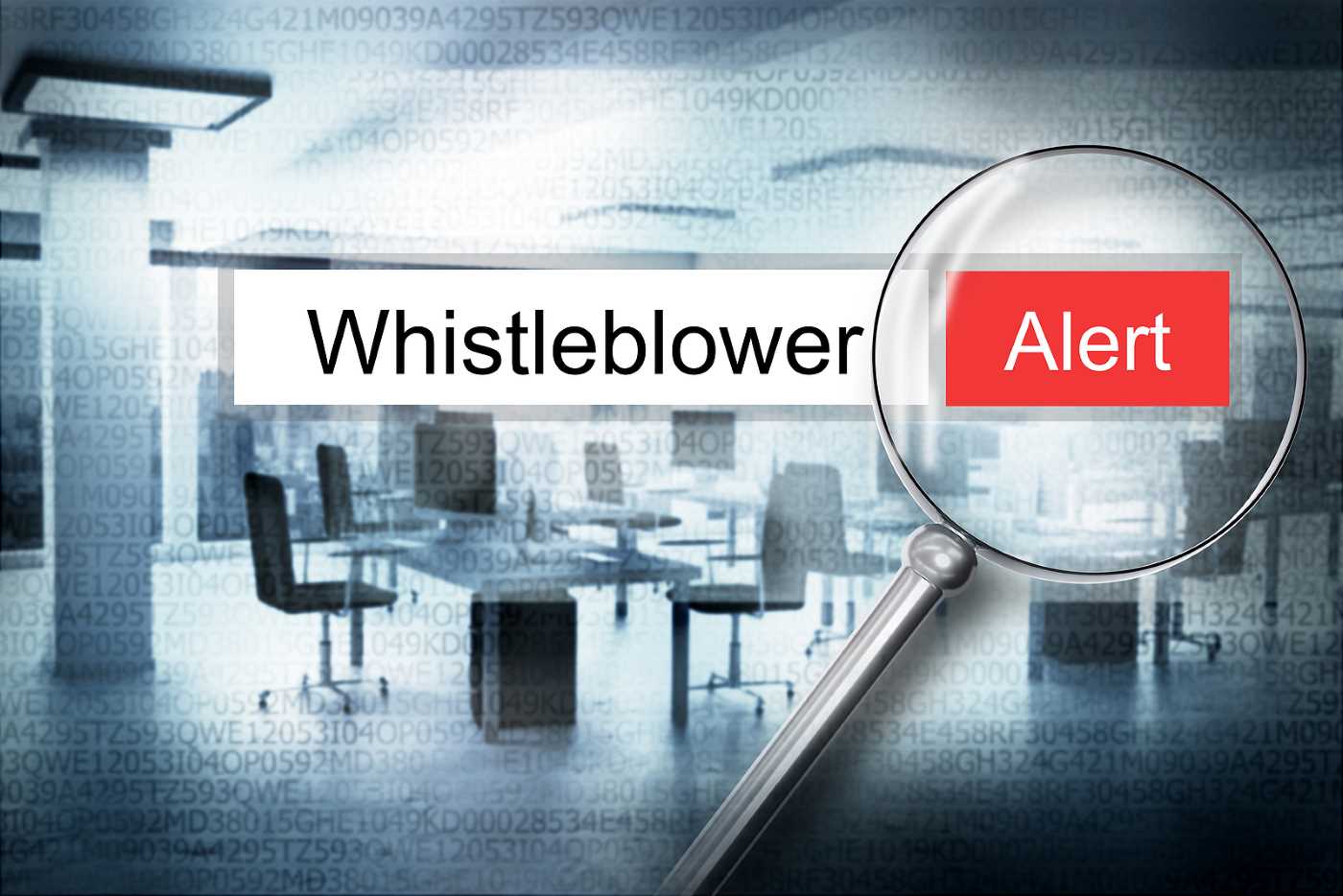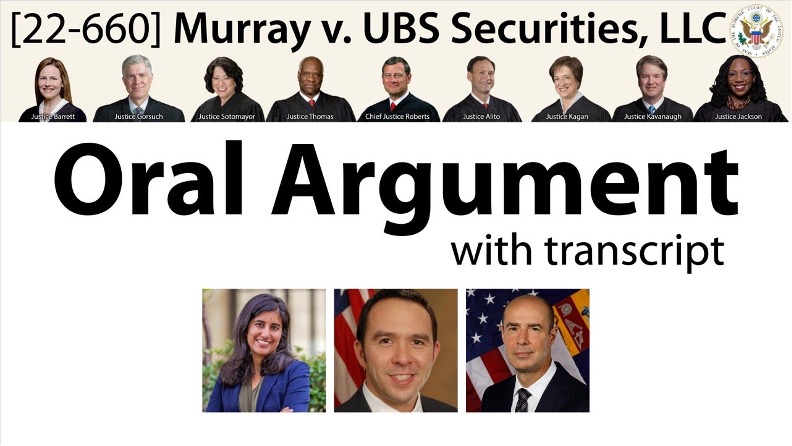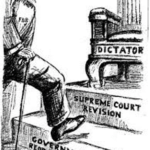The SEC’s ethical breach as an “amicus” against We the People before the Supreme Court

“In Sarbanes-Oxley, Congress employed a phrase: ‘discriminate because of’ that has long been recognized to require a plaintiff to show discriminatory intent. It is this transplanted phrase with its rich soil that decides this case.”
~ Eugene Scalia, former Labor Secretary
The SEC’s disregard for its own standard procedures presents a major ethical dilemma for independent agencies. This breach affects the institutional prestige of the SEC, the consequences of which will influence the outcome of a major case overseeing public company whistleblowers.
The U.S. Supreme Court recently heard a lawsuit concerning whether a corporate whistleblower must prove an employer acted with retaliatory intent in firing an employee or prove only that a protected disclosure – the whistleblowing – was a contributing factor to the firing.
Lower courts disagree over which standard the law requires. But a Supreme Court ruling in either direction will impact numerous litigants and industries in pending whistleblower lawsuits.
With so much at stake, it’s concerning that the Securities and Exchange Commission (SEC) decided to take sides with scant consideration and minimal review. In a 3-2 vote, SEC commissioners chose to co-sign an amicus brief by the U.S. Solicitor General pledging executive branch support for petitioner Trevor Murray in the case of Murray v. UBS Securities, LLC (2023—). The Court recently held oral argument for the case on October 10. Murray is asking the Court to reverse the Second Circuit ruling, arguing that as a whistleblower, he should not be required to prove that his employer acted with retaliatory intent when terminating him.
Murray alleges he was fired from UBS Securities, a Swiss investment bank, in 2012, one year after he informed his supervisor that two senior officials at UBS pressured him to skew the data in a strategy report. By law, such reports are required to be independently researched and presented. Murray’s supervisor allegedly ignored the complaints, and the company terminated him. Murray filed suit in federal district court under the provision 1514A of the Sarbanes-Oxley Act (SOX) of 2002 alleging he was wrongfully terminated in retaliation against his raised complaints.

While the district court sided with Murray, UBS appealed to the Second Circuit Court of Appeals, arguing that the court never informed the jury about the law’s requirement to prove there was retaliatory intent in the matter. The Second Circuit agreed with UBS, prompting Murray to appeal the matter to the Supreme Court.
Though the SEC had over a month before it needed to decide on an amicus brief, the Commission plowed ahead with its vote on July 5. In a hasty decision, the SEC co-signed as an amicus just one week before their big Sunshine Act meeting, where Commissioners were tasked with providing the public with feedback for two major rules. This major commitment oversaw a combined set of rules that equated to more than 500 pages.

The SEC was already heavily preoccupied with that endeavor and with the consideration of 18 proposed rules when the Solicitor General’s request arrived. It would have been more prudent in the public domain if the SEC Commissioners had first met with the Solicitor General, Elizabeth Prelogar, to request she refrain from submitting the government’s brief until closer to the August 14 deadline to allow sufficient time for Commissioners to carefully review all of the underlying facts of the case.
Determining whether the Sarbanes-Oxley liability provision requires “retaliatory intent” merits careful consideration and intensive legal scrutiny. Yet, SEC Commissioners had little time to consider congressional intent behind whether section 1514A’s “contributing factor test” requires proof of retaliatory intent, as the Solicitor General’s brief argues it does not. Given the circumstances, Commissioners also did not possess the administrative capacity to review the legislative drafting history of Section 806 containing 1514A to ascertain whether Murray’s presented claims pass constitutional muster for alleged retaliation.

The conservative majority on the Supreme Court may very well render a decision that requires proof of retaliatory intent. Most of the present conservative Justices often invoke the meaning of the text (Textualism) or the public’s reading of the text and its context during the time of enactment (Public Meaning Originalism). Strictly interpreting the text of Sarbanes-Oxley implies a “but for causation”—that Murray was fired “because of” (not in addition to) his protected whistleblowing activity. Therefore, applying a lesser public meaning interpretation understands that the act of whistleblowing was merely a “contributing factor” to Murray’s termination, in addition to other factors.
However, the meaning of “retaliation” in 1514A appears to imply an intent to act. The plain meaning for “because of” implies that there is an intent or “reason” to act “as a result of” the succeeding object (Murray’s whistleblowing). The “but for” interpretation of the text appears stronger than the contributing “substantial factor” and “proximate cause” tests, since, the substantial factor view would invite language like “contributed to” or “largely due to” in the text. The language of 1514A does not use additive conjunctions like “and” to imply that multiple potential factors be raised as substantial contributors to the retaliatory action.
The proximate cause test seems inapplicable for the Murray case since it would entail that there was a secondary element that may have inadvertently caused the whistleblowing. The text appears to invoke causation, constraining the retaliatory act to being a direct (“because of”) response to the whistleblowing, absent of language raising indirect proximate or secondary causes. As such, intent would be a requirement.
Two SEC commissioners, Hester Peirce and Mark Uyeda, dissented from the SEC’s move to co-sign the amicus brief in support of Murray. They released a statement describing the hurried timeline and lack of resources to consider the breadth of evidence behind the claim and its difficult legal issues. “Because the Commission has limited resources, it can engage in only so many robust deliberative processes at one time,” they explained.
SEC Commissioners Hester Peirce and Mark Uyeda dissented from the decision for the SEC to co-sign the Solicitor General’s amicus in support of Murray.
Based on the text of the SEC’s own “Commission Opinion Standards,” it would seem that the three SEC Commissioners voting in favor of co-signing the amicus brief failed to exercise a “full understanding of the matter”. Thus, because of the blatant disregard for the full matter, they ignored or compromised many of the underlying facts of the case prior to officially taking a stance. By cosigning the Solicitor General’s brief without a full understanding of the dispute, Commissioners may well have arrived at an “arbitrary conclusion”, based on a whim, political pressure, or impulse rather than by reasoning carefully, consideration of the facts of the case, or adhering to constitutional principle.
Ironically, regulated companies are held to a higher ethical degree than that, as per the agency’s own Ethical Canons, a set of equitable standards that public companies are expected to abide by. For instance, one the standards require companies to provide “timely and truthful” disclosures that are “thoroughly and accurately reported”. By contrast, the SEC’s cosignatory before the Supreme Court was disclosed in an untimely, underresearched, and seemingly cursory fashion. When did the SEC decide it was fine to operate above its own principles?
By signing onto the Solicitor General’s amicus brief, the SEC asserts an “interest in the protection of persons who report potential violations of the federal securities laws and regulations that the SEC enforces.” The SEC, as an independent regulatory agency, has a public duty to uphold the integrity of their organization and every registered securities firm that they represent without bias. However, this professional interest is delegitimized when the Commission failed to consider whether proof of intent is in fact a requisite for alleging whistleblower retaliation.
During oral argument, several conservative and liberal Justices appeared to be critical of the assistant solicitor general Anthony Yang’s questionable portrayal of the “contributing factor” causation being sufficient to justify a whistleblower’s claims. Both Yang and the attorney for Murray faced a difficult time convincing the Justices that showing proof of retaliatory intent in the act of firing a whistleblower for protected behavior was not an intended requirement within SOX’s 1514A provision.

Arguing for UBS, former Labor Secretary Eugene Scalia provided a strong case for why there is a firm presumption that Murray must overcome the burden of proving discriminatory intent when filing a retaliation case. SOX’s discriminatory intent does not require causation (and should not be conflated), yet only need to show that Murray was fired for adverse reasons relating to his protected behavior. A key argument that Scalia issues to undermine the Solicitor General and SEC’s stance in the matter is as follows:
“In Sarbanes-Oxley, Congress employed a phrase: ‘discriminate because of’ that has long been recognized to require a plaintiff to show discriminatory intent”, Scalia states. “Congress also incorporated in Sarbanes- Oxley the ‘contributing factor’ standard of the air 21 statue to address a distinct issue that this court and Congress occasionally grapple with, and that is the causation standard in a discrimination case. But just as Congress did not eliminate an intent requirement in the Title VII, where it would adopt the reduced motivating factor causation test in Title VII, so in Sarbanes-Oxley, it did not eliminate an intent requirement by incorporating the reduced contributing factor causation test of air 21.”
In conclusion, I am convinced that the Murray incident represents an alarming instance of institutional neglect for the ethical standards governing the careful, impartial review of major securities disputes. Co-signing an amicus brief by the federal government is especially significant because the Supreme Court often defers the highest level of attention to briefs submitted by the Solicitor General. The SEC’s co-signatory role further cements this institutional advantage and is perceived as a professional badge of approval by the justices. Therefore, by failing to exercise due diligence and careful consideration of a lawsuit impacting all private-sector whistleblowers across a number of companies, the SEC does a disservice to We the People.
Category: Socrates Corner















